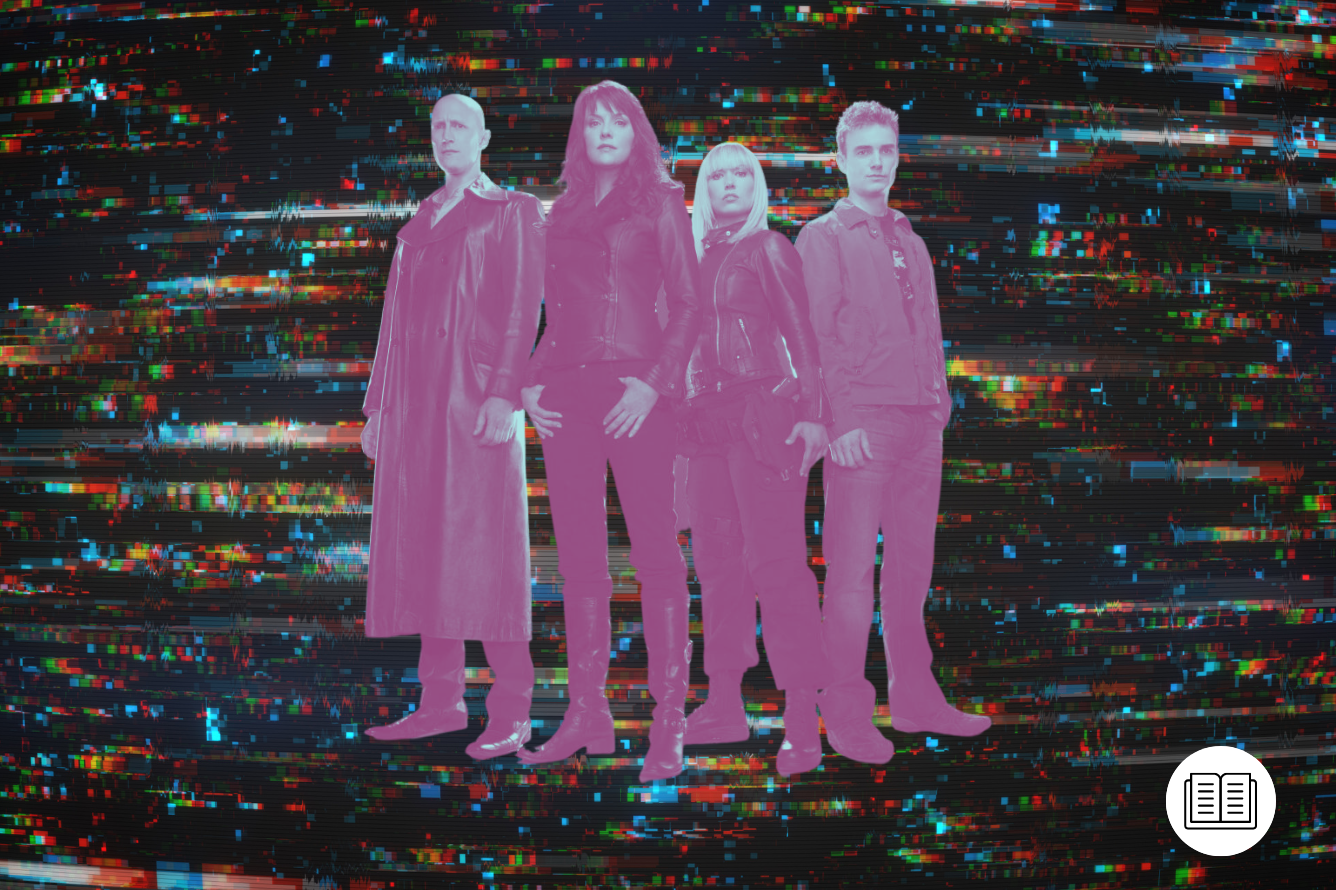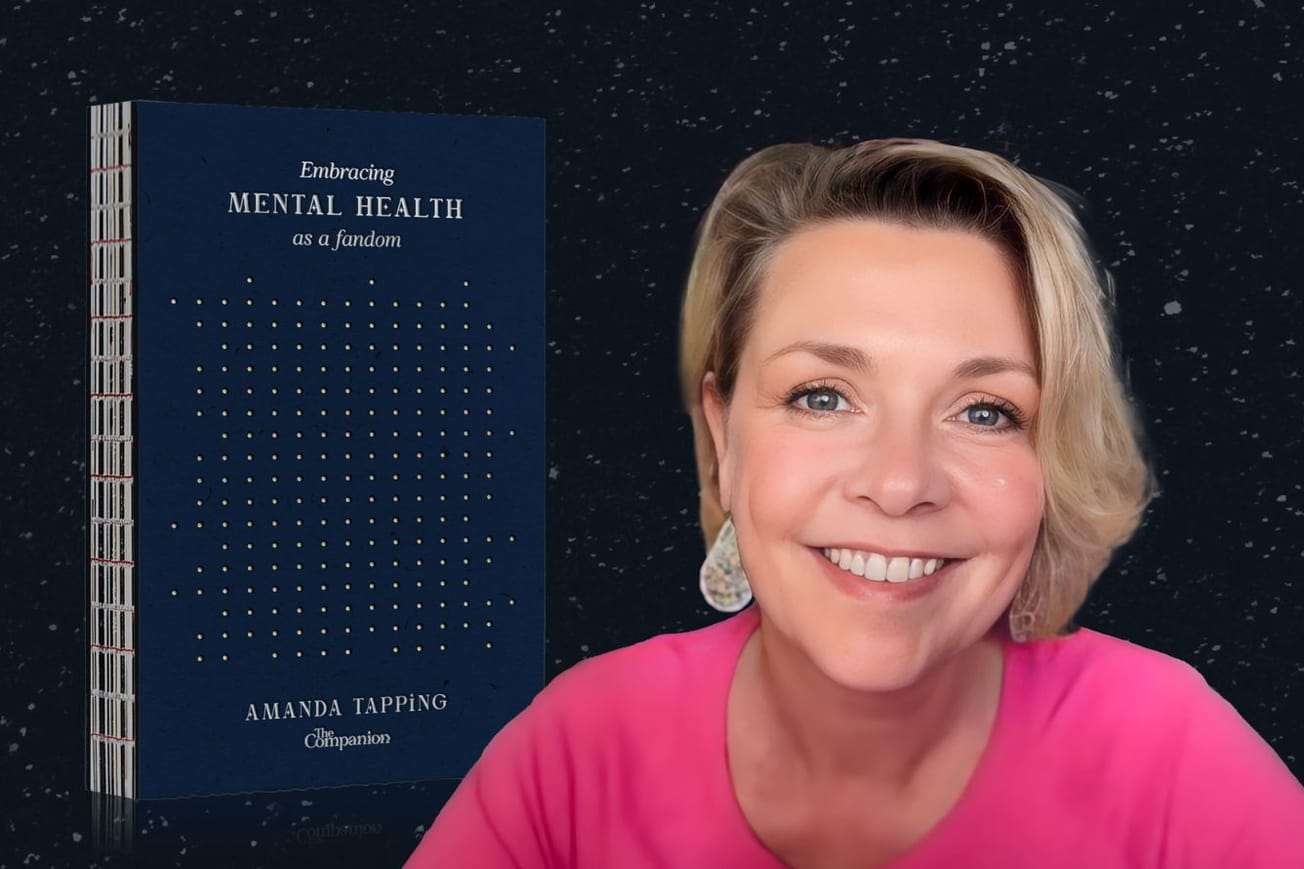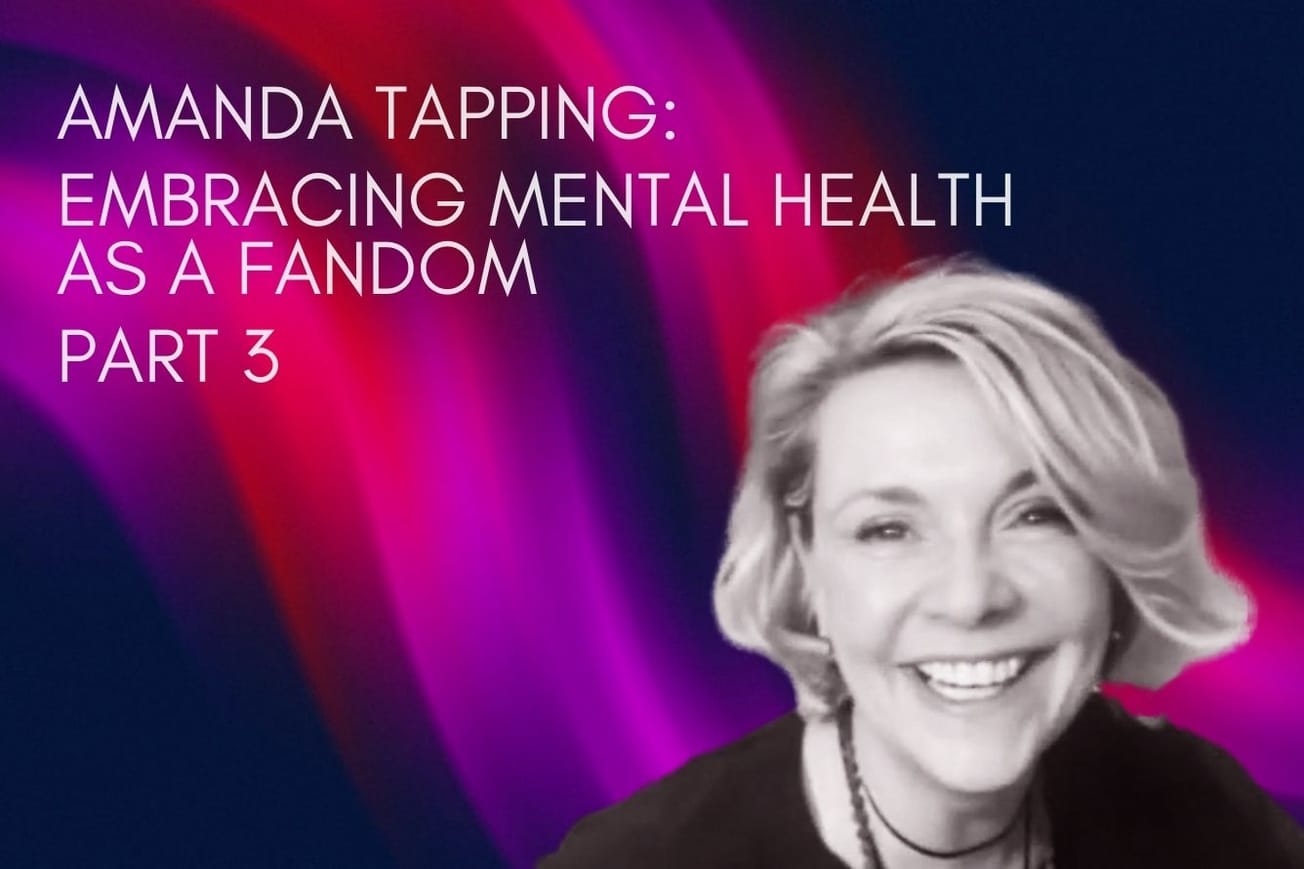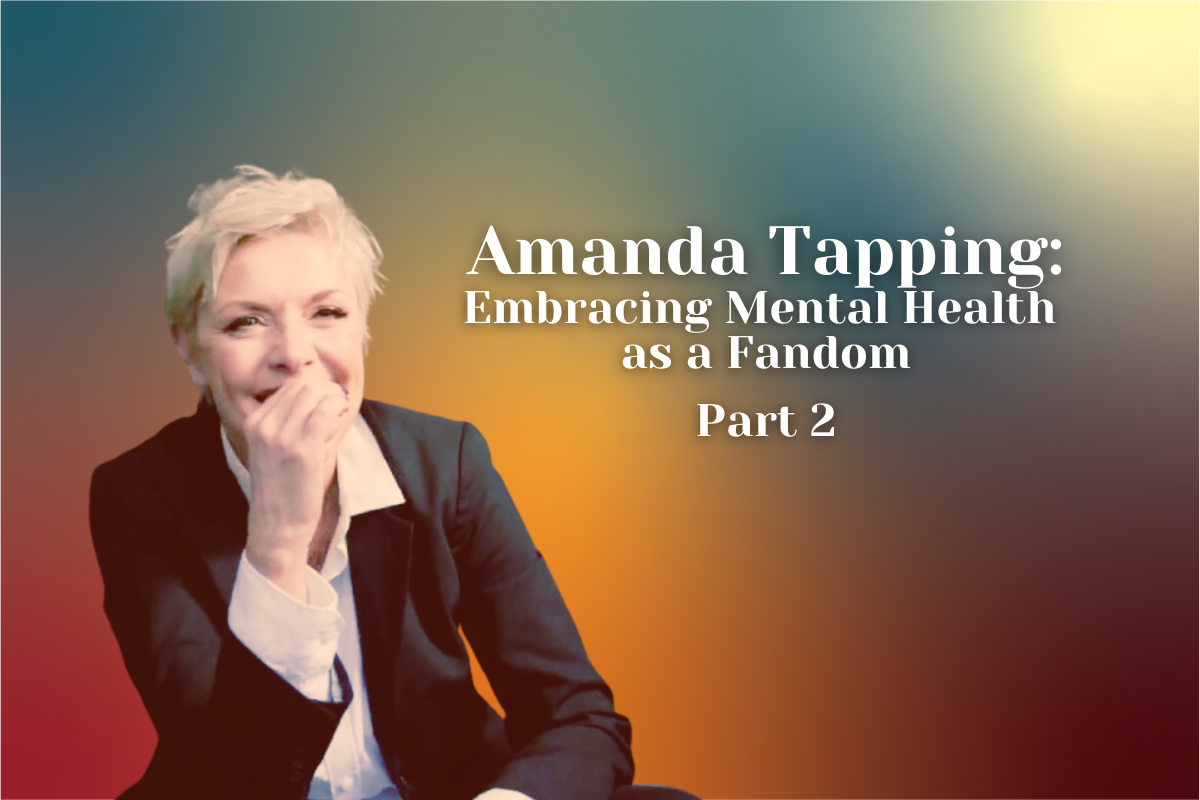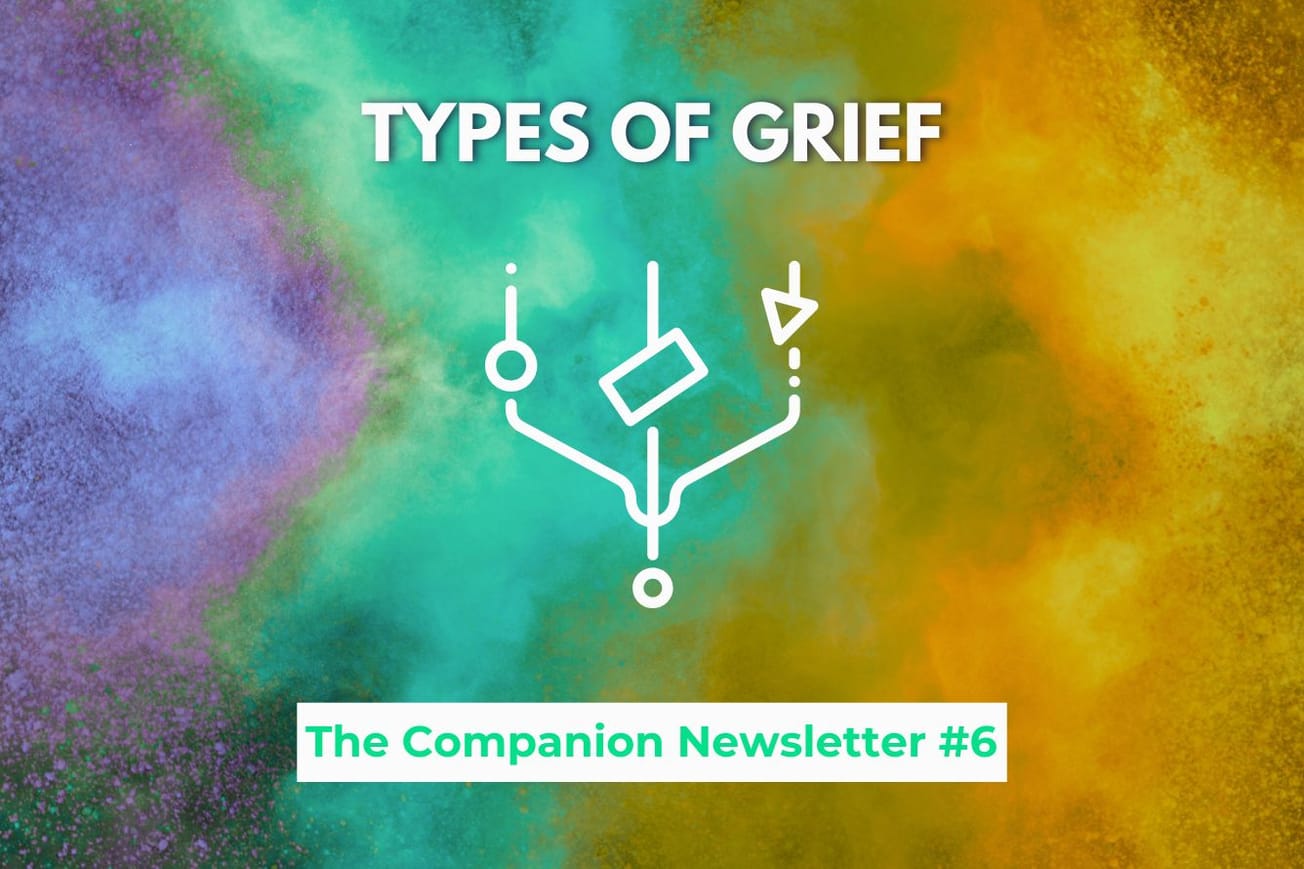Around 15 years ago, fresh from being a writer-producer on Stargate SG-1 and Stargate Atlantis, Damian Kindler went rogue. Drawing on experience gained working on a string of hit shows, he formed an indie production company, Stage 3 Media, with plans to challenge the major TV networks’ dominance over the distribution of small-screen entertainment using the internet.
Multiple streaming services, millionaire YouTubers and behemoth tech companies are the norm these days. Back in 2006, though, Kindler’s vision was innovative and optimistic. In what was contemporary tech’s equivalent of the Early Modern Era, there were no iPhones, social media wasn’t a thing, and Netflix was still distributing DVDs because dedicated streaming was still practically science fiction. Kindler, like many people, saw the emerging potential of the internet to open source everything.
To further his ambitions, Kindler secured funding from a Vancouver property development company, The Beedie Group, and recruited former Electronic Arts exec Marc Aubanel, IT specialist Martin Palacios, and fellow Stargate SG-1 alumni, director Martin Wood, producer N. John Smith, and star Amanda Tapping, to make a straight-to-web series called Sanctuary.
Sanctuary would be different on several levels: it would be available to download off the internet, it would be the first show filmed entirely using the state-of-the-art hi-def RED camera, and it would be almost entirely shot on green screen. By anyone’s standards, it was an ambitious project, and since then Kindler’s career has gone from strength to strength – serving as executive producer on Sleepy Hollow, Krypton, and American Gods, and recently creating October Faction for Netflix.
On the eve of the web series’ Vancouver launch party in May 2007, and excited by Sanctuary’s potential to bridge the gap between fans and creators, Kindler sat down with The Companion contributor Mike Simpson and spoke at length about the production process and his hopes for online entertainment in the noughties and beyond. History shows that things did not develop as Kindler thought they could, and the ultimate success of Sanctuary owed much to the traditional TV network-based system it might have upended. Nonetheless, Kindler made some prescient predictions, and his comments give fascinating insights into how early adopters in the online distribution space foresaw sci-fi’s potential to make the internet a sanctuary for all. As a blast from the past, we’ve pulled that interview out of the archives and published it for you in its entirety below.
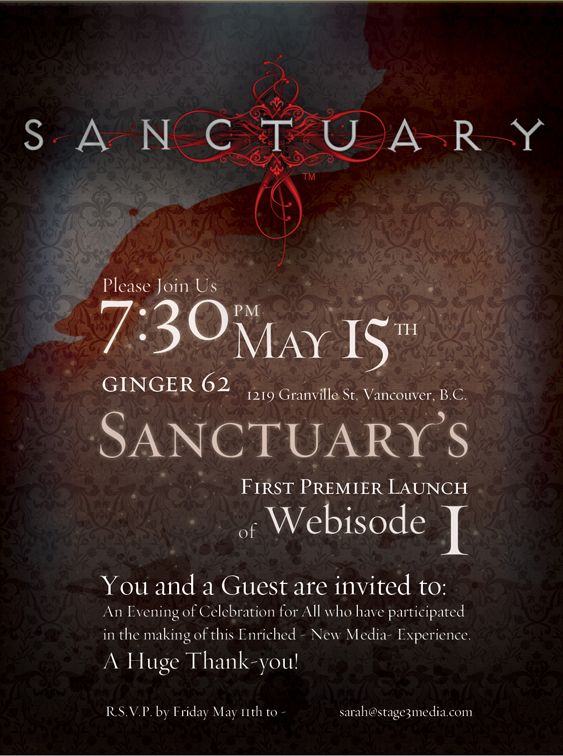
How did you get into writing for TV?
Damian Kindler: I would say there’s nothing unique about the way I became a writer. [It was] more of a desire to pay the rent than carve out a niche for myself in the great canon of anything. When I was in high school, I really loved writing. I was quite good at English and, like a lot of romantic young teenagers, [I thought], ‘I want to write the great Canadian/Australian/Irish novel’. But even at a young age, I had tremendous ADD. When I was in [Queens] University I did take film writing courses. I had a romantic love of feature films and quite a lot of disdain for television as a young man. It’s funny; one of the people I knew very well at Queens was a woman named Simone Urdl, who’s been a producer of Atom Egoyan’s features for quite a few years … She wanted to go work for Citytv or CHUM [Canadian media companies] and I was thinking, ‘TV? It’s the grindhouse of the lowest common denominator. I’m not interested. I want to be a feature writer’. Then she went and worked for the high-art Lama of Canadian feature films, and I started working on TV.
So anyway, how I ended up in TV is actually a shorter story than I am making it. I was working as a script coordinator for a Warner Brothers TV show called Kung Fu: The Legend Continues, starring David Carradine … I worked very closely with the producers. They really liked my work and the way I viewed the show. I had script samples that I could show them, so they offered me a script and I started writing for that show … When my contract was up for renewal as the script coordinator — and I was quite good at it — they were terrified of trying to hire someone else…
So a writer on the show said, “Hey, do you want to write a script?” I said, “No. No. God no. Why would I want to do that?” He said, “Have you seen how much it pays?” and when he showed me, I said, “Yes! Where do I sign?”
Is there a process that you go through with every script that you write?
Damian Kindler: Absolutely, there is an absolute distinct process that I go through. It’s called agony and procrastination and making those immediately around me suffer because I am chewing on problems I haven’t solved. My wife can tell you exactly what stage of the scriptwriting process I’m at by either how happy or miserable or grumpy or irritable I am. [She would say,] “Oh, you’re happy because the people in Stargate liked your pitch and you’re golden”, “Oh, you’re in the outlying phase because you’re still structuring it”, “Oh, you’ve gone to draft, you’re actually kind of smiling,” [or,] “Oh, you’ve just got notes and that’s why you’re snapping at me.” … I love to talk about [writing] with writers and other people who understand what we’re doing, and then I really need some solitude to go and problem solve off in a corner with myself … It’s like a public and private kind of thing until finally, the script is where it needs to be. I really do like to collaborate with people, but I like to write the script myself. I am not an over-the-shoulder ‘you write a scene, I write a scene’ type person.
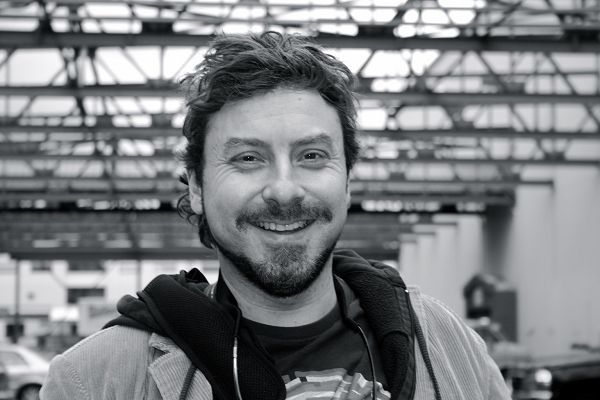
What do you find is the hardest thing about writing, and what aspect of it gives you the most satisfaction?
Damian Kindler: The hardest thing about writing is finding a structure that works. It’s easy to say that the character does this, the character does that, and this would be a neat action sequence, but finding that ironclad spine that’s unassailable is very hard. Anyone can come up with a concept of, “Oh, this should happen, that should happen,” but it’s very, very easy for that concept to get distilled into moments that work with very weak filler in between. So, making sure that every section of the script is a logical place, a surprising and interesting place, and that nobody’s way out ahead of you [is important]. Audiences are so savvy … and they will all guess unless you really think as hard as they do about what you’re doing. It takes freshness, originality, strong plot spawning, and not confusing people.
It’s like a joke: if you have to explain it to your audience, you’ve blown it.
A lot of your work, at least in recent years, has been in science fiction and action-adventure shows. What is it about those genres that you find particularly appealing?
Damian Kindler: All good drama is escapism. I really get kind of sick of people going, “You know, The West Wing’s plots are really good television. All this stuff with things blowing up and visual effects is just another piece of garbage.” There are wonderfully profound things to be said in every art form. I think the great thing about sci-fi is that you’re able to more directly comment on social issues. There are issues that we explore on Stargate — religious issues about belief, faith, about fanaticism, and fundamentalism — that we would never have done if we were writing The West Wing or things like that. I think you’re able to create metaphors more readily that allow you to discuss heavy issues. Star Trek did it all the time. Issues of the human condition now are always best explored in a science fiction metaphor.
You could say that Children of Men [2006] was action-adventure because they went on an adventure and it was full of action. But that was a really profound and intellectual dissertation on evolution … I think one of the shows that really broke down the barrier between what a genre show was and what a drama was is The X-Files because it put out wonderful, wonderful shows that were really good dramas. I remember [my wife and I] watching an X-Files. It was the one with the metaphors like the Branch Davidians. It was a cult with reincarnation, and it was like the Civil War [Kindler is referring to the Season 4 episode ‘The Field Where I Died’]. There was a particular area that, when you entered it, triggered reincarnation memories very powerfully.
They regressed Mulder and he has this wonderful reincarnation memory that he and Scully have been on this journey for lifetimes and lifetimes together as different people. And my wife was wiping away her tears going, “It’s so wonderful.” And I go, “Wow, this is transcendent.” It’s not just “What’s the monster in the closet?” That’s, in a way, what I wanted Sanctuary to be more like … So, I think that’s what attracts me to sci-fi. It has the ability to be everything you need in entertainment.
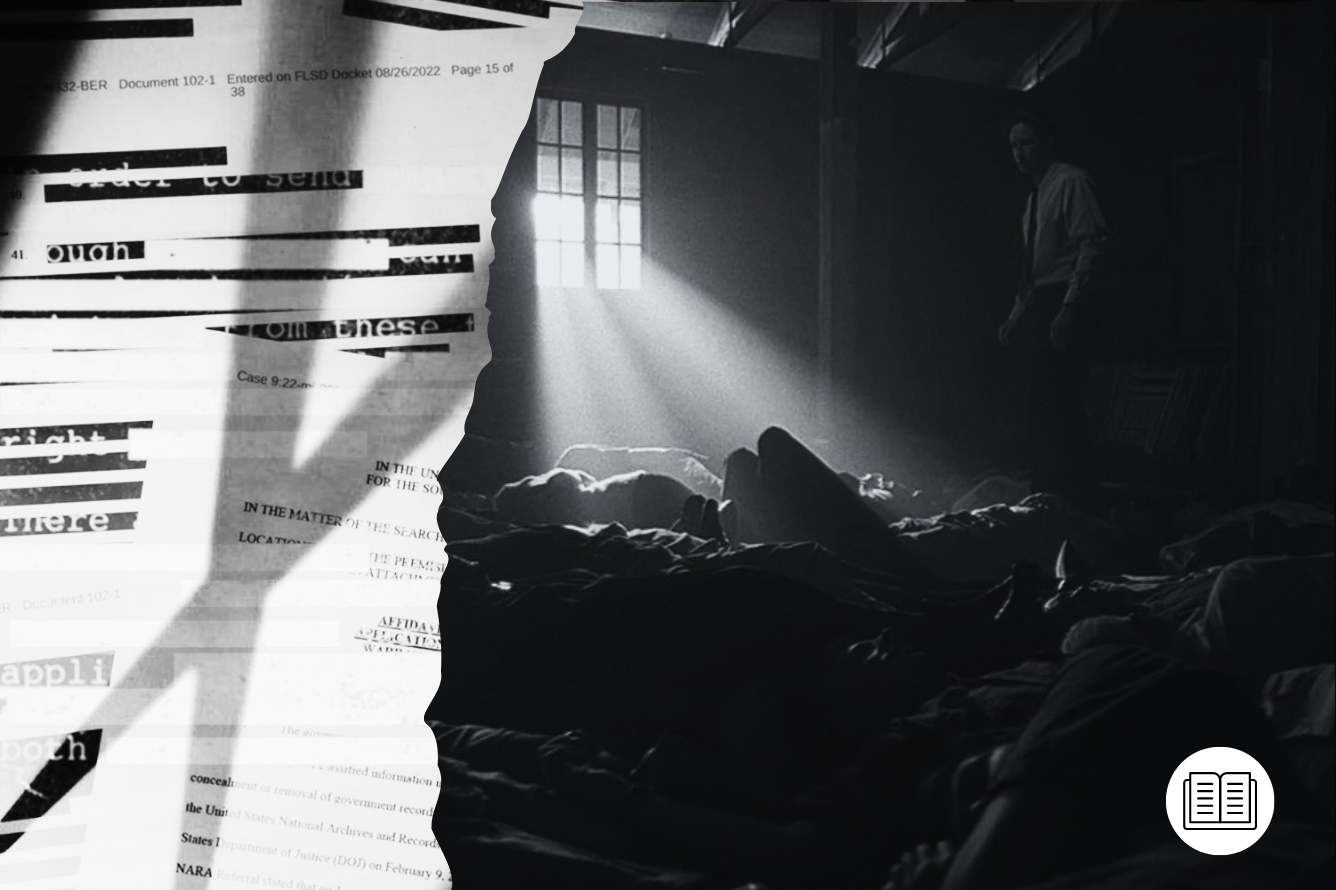
Can you briefly explain how Stage 3 Media came together and how you met the other principals in the company?
Damian Kindler: The two other principals in the company are Marc Aubanel and Martin Palacios. Martin Palacios and I are very old friends. Our daughters go to the same school and his wife and my wife are very close. He’s a pretty good friend of mine. Marc Aubanel I met because I bought a house from him in West Vancouver, and he’s been a vice-president of Electronic Arts for many years. We just literally began to have wonderful conversations, the three of us, about the Internet [and] the future of entertainment. Because Marc worked in gaming and I worked in television, we often talked about what was different and what was similar about these mass media empires we were both toiling in. And [we] began to discuss the issues of, “Hey, where’s it going and what’s the pattern?” All three of us saw that visual media was going already at the same place that the music industry was at, which was that a lot of people were in complete and utter panic or in states of denial about the fact that nobody was watching TV the way they were before and everyone was on the internet tapping their watches going, “So when does this do what I want it to do, because I’m here and I’m not going anywhere?”
So, we realized that there was a real opportunity. And this was all before Google bought YouTube and everyone began to discuss the amazing revolution of high-end media going on the net as opposed to grassroots home movies. We began to talk about how we could put that together. Marc said, “Look, I can bring in people who are very talented game designers, visual effects designers,” and I said, “Yeah, I can bring in wonderful production people. Oh, and by the way, I have a script that Martin Wood, the director, and I really love [that] we were going to take to a network. But let’s not take it to a network. Let’s see what we can do with it.” And we brought in Ron Martin, who has been an absolute driving force, both creatively and technologically, helping us find ways to do this, to do a green screen show as opposed to just a green screen film.
So, it was a synergy of the people I knew at Stargate and wanted to work with, [and] the people that Marc knew at EA. Martin Palacios has a really strong technology and multimedia background. We literally just got traction right away and it was kind of a gravity that couldn’t be denied. We founded the company, we started doing a test shoot, I wrote a second hour, we wrote a business plan, we started working with our principal investors and it was like being caught in a slipstream. The moment we just pushed that domino down, we were literally running to keep up with it.
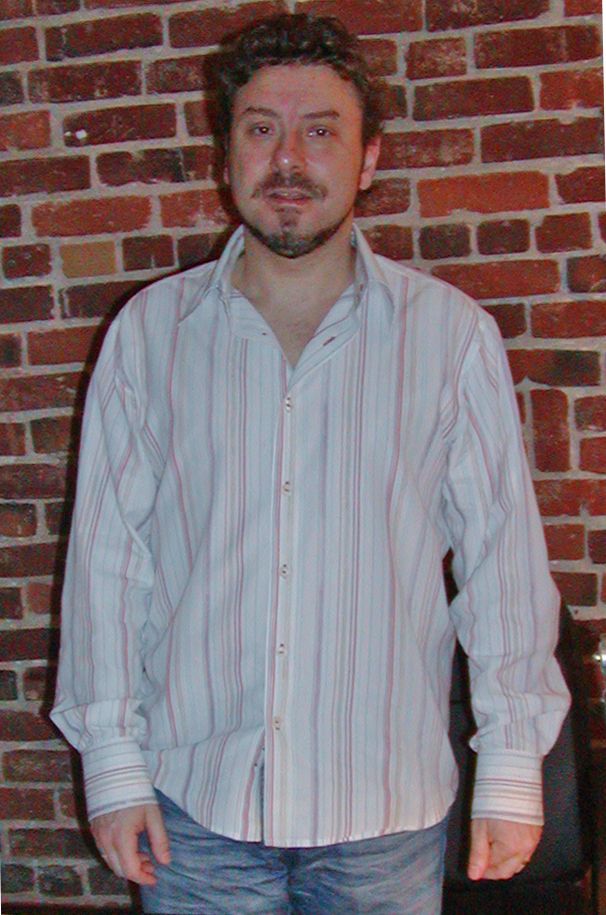
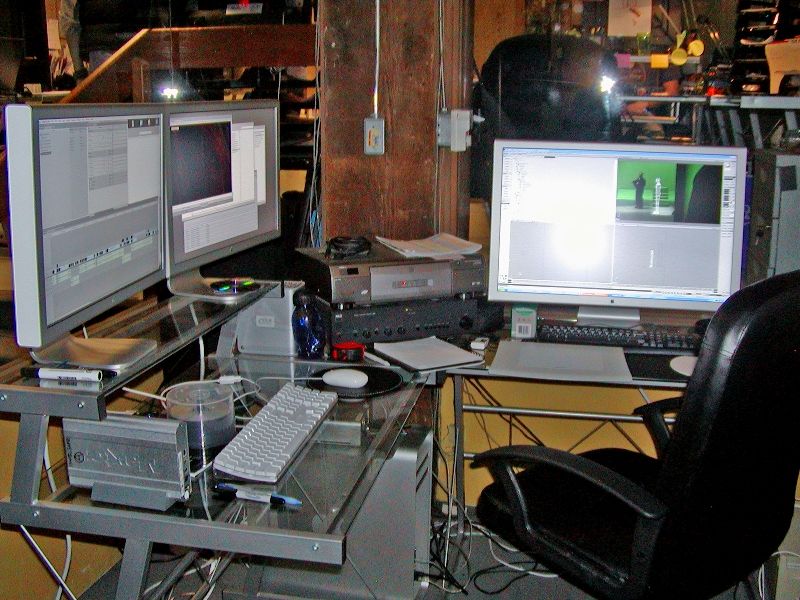
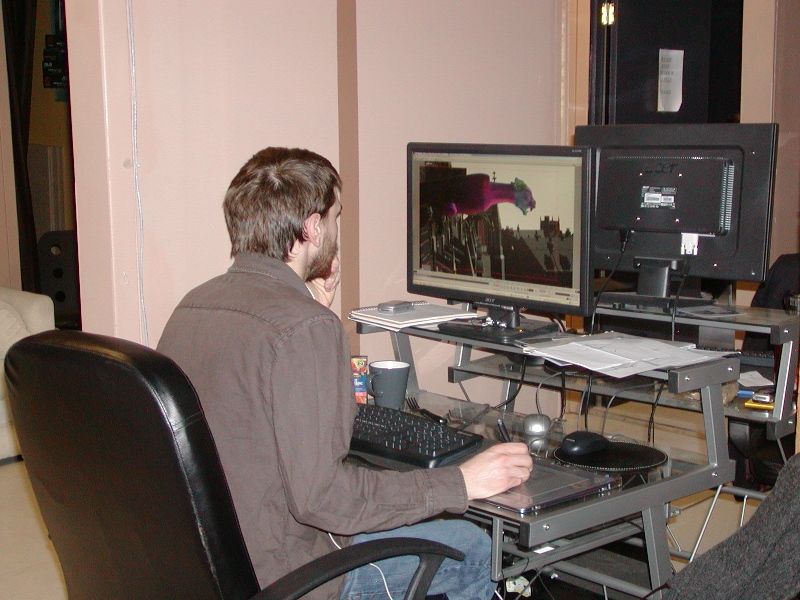
What were your main inspirations for Sanctuary?
Damian Kindler: You mean the original script that I wrote? It was written to really represent something I wish I could see on television, something that had the kind of depth and possibilities without seeming like another, “Oh, this is the sort of show that’s coming along because everyone’s making shows about … you know, like someone’s making a movie about an asteroid hitting the Earth? Well so am I.” You know how they say, “Well these people are making a big law show, these people are making a hit medical drama, these people are…” Buffy came out of nowhere. It was a movie that the guy said, “Well it wasn’t done properly. We should make it as a show.” The same with The X-Files. It became a phenomenon, but it made no sense at the time. It caught a wave beforehand. I wasn’t interested in catching a wave. I wanted to write something original as best I could and by tapping into all sorts of other things that I liked.
At the time, inspirations were definitely things like X-Files and Buffy. I was a very, very big fan of the comic book The League of Extraordinary Gentleman by Alan Moore. That kind of very powerful writing in a kind of alternate past where there was advanced steam technology and things like that. I wasn’t fond of the movie as much, but I did love the comic book.
And I really liked a book called The Alienist by Caleb Carr, which was about the first profiler working on a mass murder case in turn-of-the-century New York. So, there was kind of a real love of the gothic, a love of the mysterious and other-worldly, and I sort of mashed it up in my blender, and out it came.
I don’t believe in the whole genius thing. I think it’s more like you’re a funnel for cultural fodder and somebody has to be the conduit and out it comes. Then people either go, “Yes, we like that,” or, “No, that’s terrible.”
I was going to ask you where the inspiration came from to have the show start in Victorian London. That’s a period I find fascinating personally, being a Sherlock Holmes fan.
Damian Kindler: Exactly, and me too. I absolutely absorbed Doyle as a boy and my mother is from the UK as well. [Those] whole British roots to me give it an absolute depth and heft that you have to be respectful of. You can’t go [Kindler puts on a posh voice], “Oh, look at me. I’m British, and thus what I say must be very important.” Don’t throw the British guy in there so people go, “He’s a smart guy.” You have to be respectful of that. What we’re gonna do, actually, with not just England in Victorian times but with Europe over the past 5000 years, with the mythology of the show as they go forward in the next few seasons, is going to be remarkable. We’re going to really do some, I want to say almost like paranormal Da Vinci Code stuff. Not that I liked the book much; I like the idea.
It’s a cool period because it really lends itself to a whole bunch of different genres.
Damian Kindler: Well, I think you want to take something like Jack the Ripper, and you want to say, “I have an idea for Jack the Ripper that’s not Time After Time [1979]. It’s going to be something better.” And I think that when you say Jack the Ripper, people, on the one hand, say, “Uh, not again,” and on the other hand they go, “But, Jack the Ripper’s cool. I wonder what they’re gonna do.” It’s a way of using something very iconic and saying, “Don’t worry. Trust us. We’re going to take this to an interesting place.” [In Sanctuary] he’s going to really transcend that cliché of being the psychopath who kills, because when we start to explain why he kills and what his character was like before he became ill and what his connection to Magnus and Ashley is, we’re going to change the way people think about him that’s not so cut and dried. And Chris Heyerdahl… it’s like working with one of the great actors. You can see from the opening, he just brings this complete power to the role. Wow. He takes it to a really amazing place.
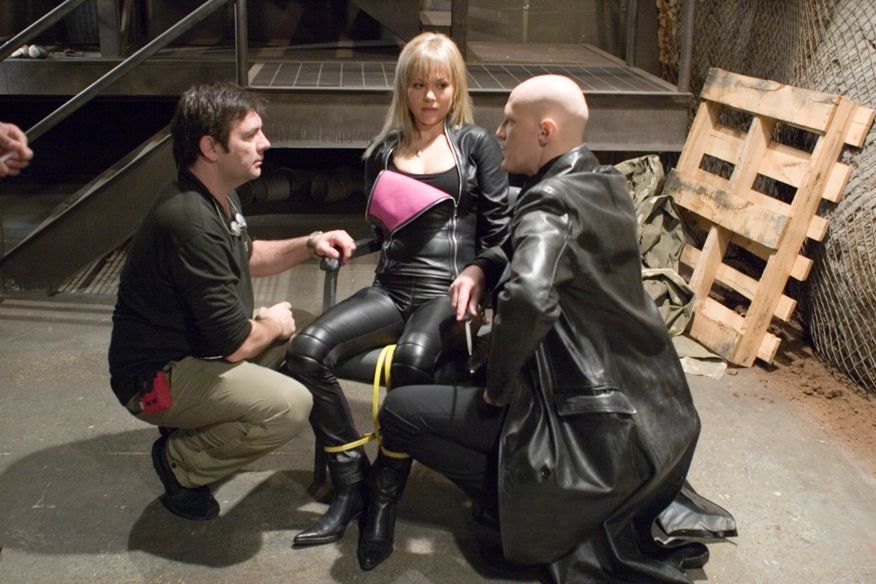
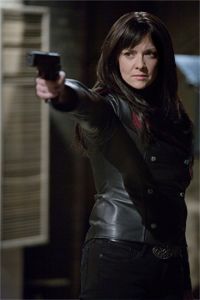
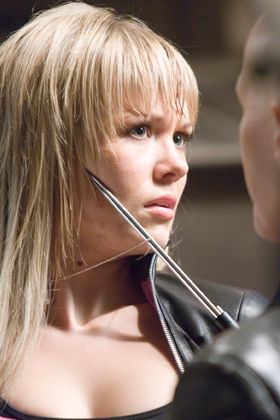
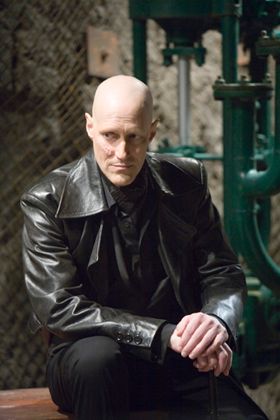
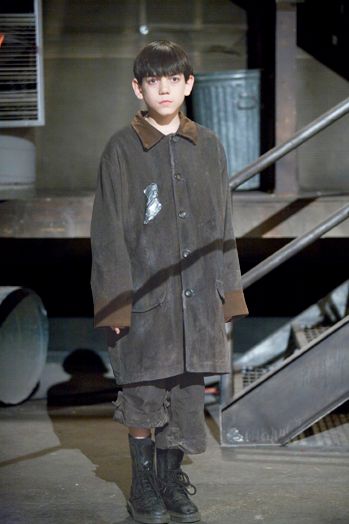
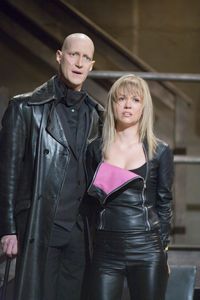
What are the elements of Sanctuary that you think make it different and unique?
Damian Kindler: To be honest, I don’t think there is anything particularly unique about the show except that it’s not paint-by-numbers. It’s not, “OK, get me a young good-looking guy who is cheap. You need someone hot and then maybe someone sassy. And let’s do it in a law firm.” It’s like, let’s get a woman who’s got an incredible past and then start to build it from the organic roots of what that story, her story, is. Because it wasn’t high-concept, other than monster-of-the-week, I think it has a lot of virtue just in that. It doesn’t try to be the hot concept out of the gate. It just tries to be something that stands on its own two feet. As far as what elements of the show [are unique], I can tell you what I like. I don’t know what is unique about it because there have been people hunting monsters before. It’s such a blend. It’s like someone says, “Look, there’s a really nice blend of wine that’s got every kind of grape in it. Just taste it.”
I think the most unique thing is that it has a look that’s different because we use 3D virtual backgrounds, which is great and allows us to do film work and shots and digital effects that no one has done before. And I think having a female lead who is believable. We’re adding a level of reality to a fantastical environment where you go, “How old is this woman, this very beautiful older woman?” If this were CSI, they’d start with the grizzled guy who’d seen it all and build a team around him.
And I think, unlike some studios, I’m not afraid to start with a woman and not have to give her something to balance out her power. Just let her be the center of it. I have a lot of faith that people – men and women – will embrace that, and I don’t need to hedge my bets creatively by putting elements in that are more for marketing issues than for the organic needs of the show.
Was it a conscious decision to write the lead role as a woman?
Damian Kindler: Yes, because the spine of the show, which is to not fear, to overcome fear, and to seek out knowledge without the need to exploit, is a kind of harmonic journey that I think [Helen] Magnus is on. She’s seeking knowledge and she’s seeking understanding and she’s seeking a cure for her own condition. She has a condition that is incurable, and she doesn’t seek power, and that puts her out of joint with a lot of people who would behave in certain ways with access to the things she has access to. I don’t want to punish her for having a healthy ego or a sexual appetite or any of that. I think that she should have the same rules apply to her character as to any leading man, and I think that’s a unique approach. I feel very strongly about it. And I don’t think Amanda Tapping would be that interested in playing the role if she was this woman who had to pay the price for her powers.
I think Magnus has to deal with a lot of crap from people who want power and are powerful. But they’re the bad guys. As far as the female cop who is busting her way up through the ranks, that is not the story. This is a woman who has deliberately, for a long time, been working outside the system and created her own system and can never reintegrate back into society because she has created her own way of living. I think that’s interesting. I think a lot of people like that power and strength of character. She is unto herself. No matter how hard, lonely, or difficult that journey is, that’s the journey she’s on, and that’s a bit unique to the way shows are set up.
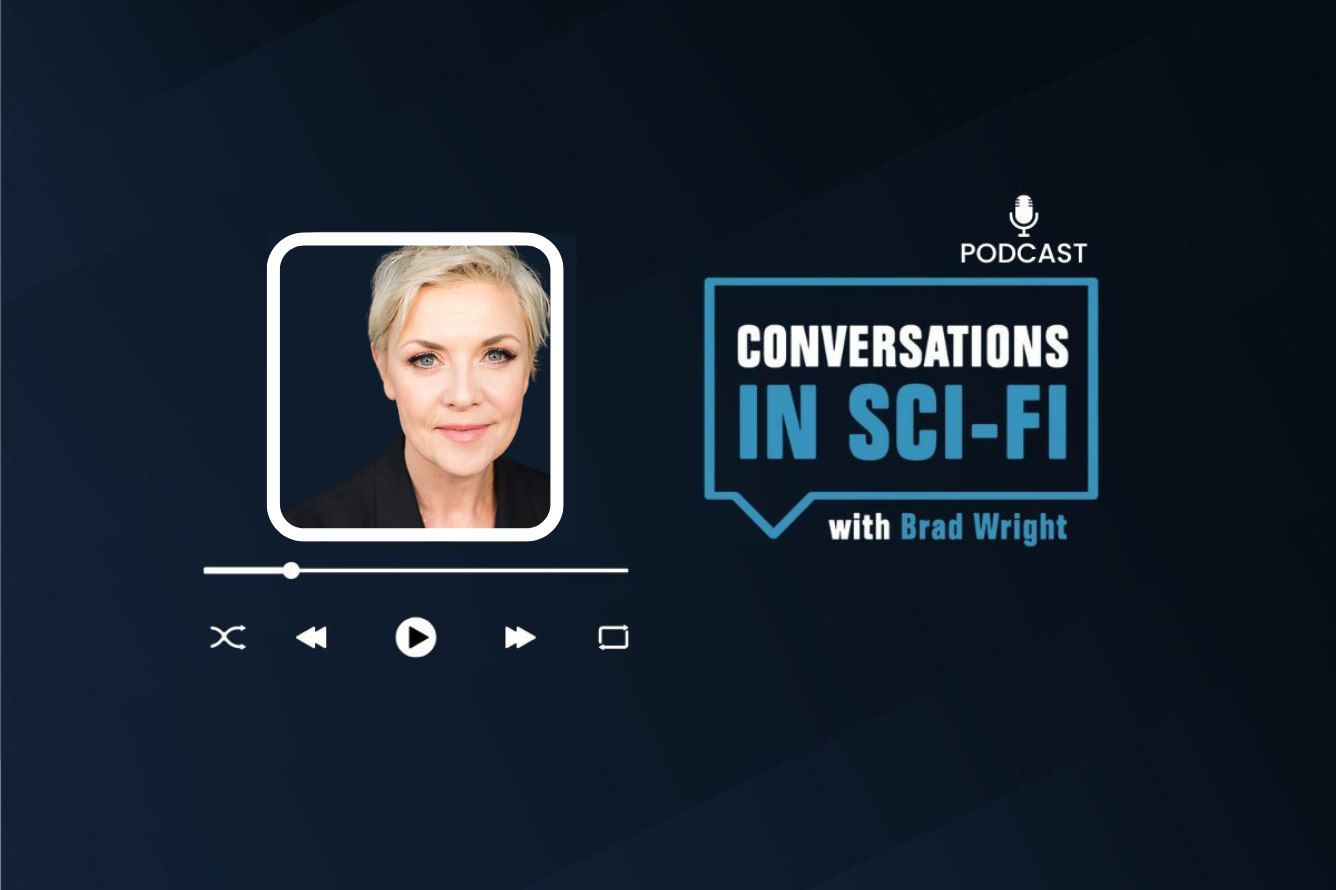
I read somewhere that while you were writing scripts for Season 7 of Stargate SG-1 you were kind of obsessed with Samantha Carter’s character. Is that what led you to consider Amanda Tapping for the role of Dr. Magnus?
Damian Kindler: In a way. I think that when I got on Stargate in Season 6 one of my first feelings was — after seeing Amanda’s work and getting to know her a little bit — that her character was woefully underexplored. She’s a space physicist, astrophysicist, genius pilot, soldier, Air Force major, and can do a lot, and she’s doing this huge amount of making you believe and care about reems of techno dialogue that the average person would just nod off hearing about. I immediately became fascinated as to what else was going on with her. And I know they made her fall in love and they gave her a father who was saved by an alien, all neat stuff, but that was all happening outside. So, I began to get obsessed with giving her a story that would bring out some elements of her that would flesh her out to me as a person. Not about her abilities; her abilities are without doubt. She’s a genius, she’s brave, she’s worthy, she’s heroic. But I wanted more layers, so I kept pitching ideas.
And to be honest, Rob Cooper agreed with me. He said, “Yeah, we should definitely [do it].” He really liked her character and said, “Well, pitch some ideas. Let’s do Carter stories this year.” The real seminal moment came when I actually had a dream about — you know, when you’re constantly trying to come up with ideas, sometimes they slip into your dreams — so I had a dream about Carter hatching a plan and something to do with a decaying orbit, but we’d sort of done that. So literally in the morning, before I’d even prepared…
Sometimes you go and you’re hot out of the gate, and you’re rubbing your hands together, [and you go], “All right! We begin on a spaceship…” but this time I sort of stumbled in [and said], “Rob, I had a dream about Carter trapped on a planet in a decaying orbit and she’s dying, and she had a head injury.” And he goes, “Oh, really? Well, the thing that you just said there that’s not right, but we can fix it, is that you said ‘planet’.” I said, “Well, what should I have said? McDonald’s? What should I say?” He said, “Say ‘spaceship’.” I went, “Ooh, that’s good.” And we talked about it and that became ‘Grace’, which was one of my favorite Stargates.
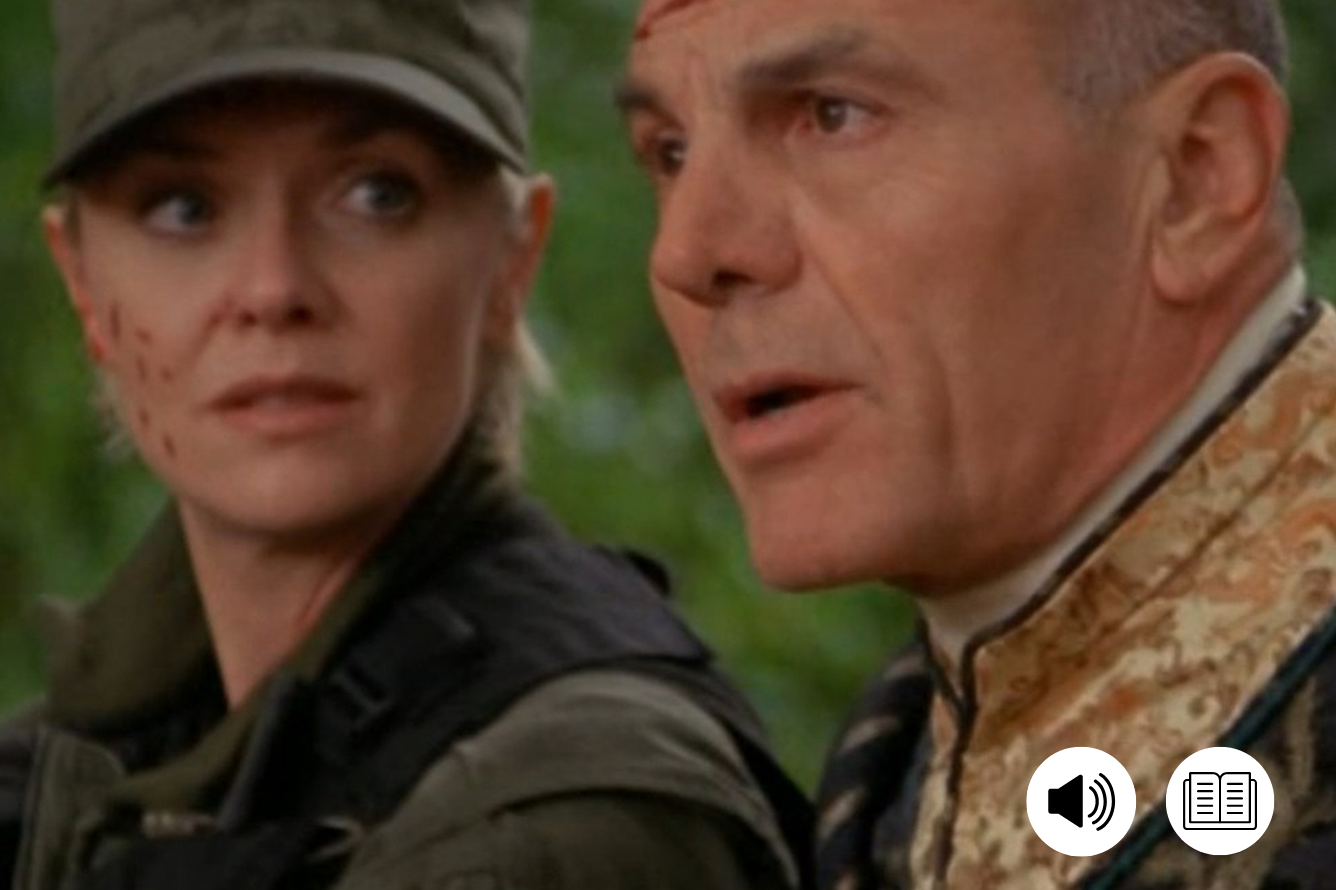
That was great because when you’re given the leeway to write something different for a character, you get a really fresh approach to the way you write, and you get excited about what you’re doing because you know you’ve been given keys to a section of the mansion that people aren’t in. So, you feel quite honored. And then you feel the pressure the moment the draft goes down to the actors but [Amanda] called me and she said, “This is just incredible. I just don’t know what to say.” It was so great. It turned out really well. Peter Woeste did a great job directing it and I loved the way it turned out. My instinct was definitely good. Then I kept after it until Rob was going, “Enough with the Carter stories.” I did ‘Chimera’ and gave her the boyfriend. The boyfriend pitch sold because we said the twist has to be the boyfriend doesn’t die. The working title for that was ‘Black Widow Carter’ because every guy she meets ends up an alien or dead or trapped in another dimension or, you know, with something coming out of his ear [laughs]. So, the trick was that the guy gets blown up and then he’s fine and we see him again. That was fun. That was a long answer, but yeah, I was very attracted to making her character interesting. And it was fun to introduce a character like Vala as well.
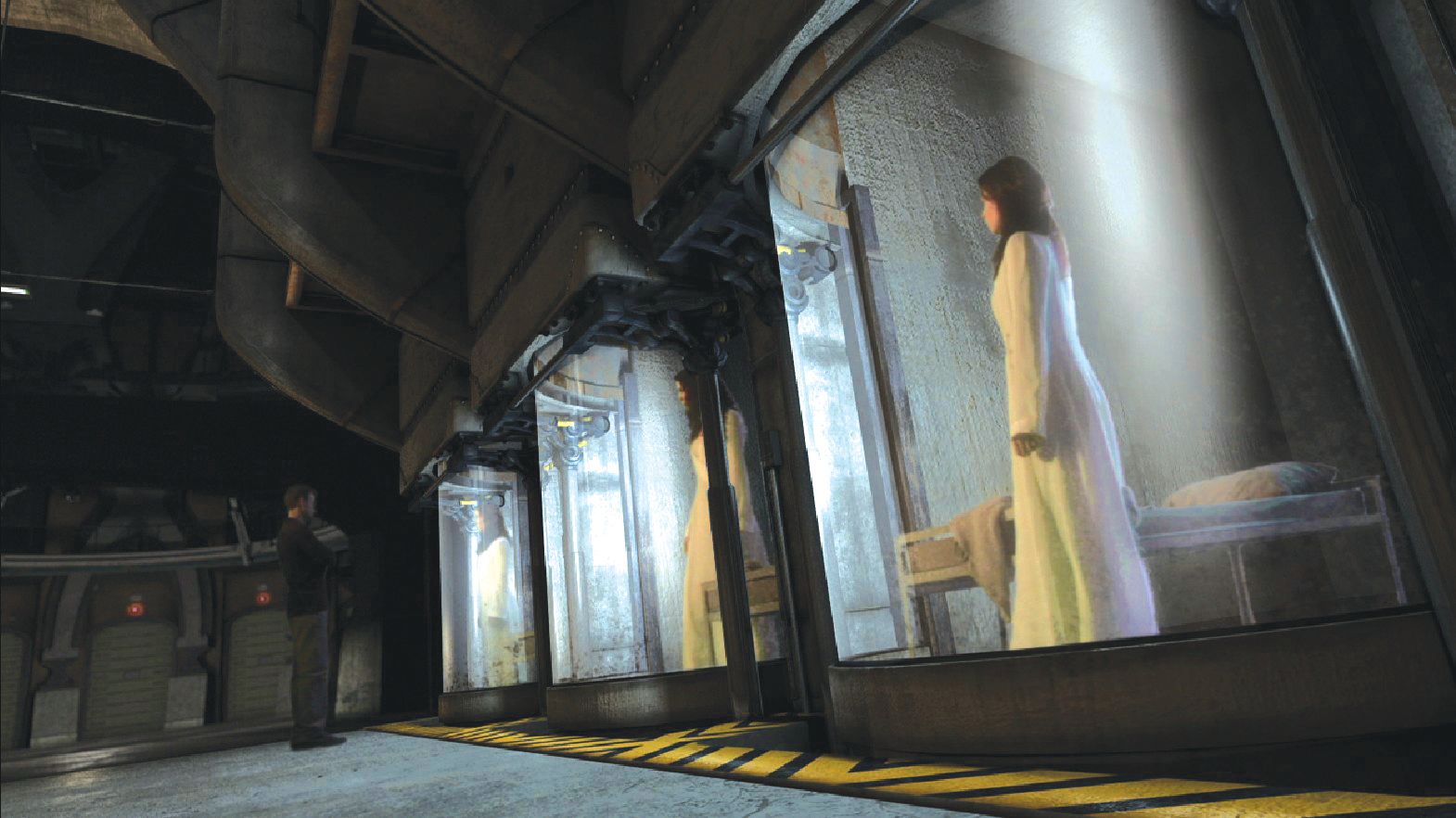
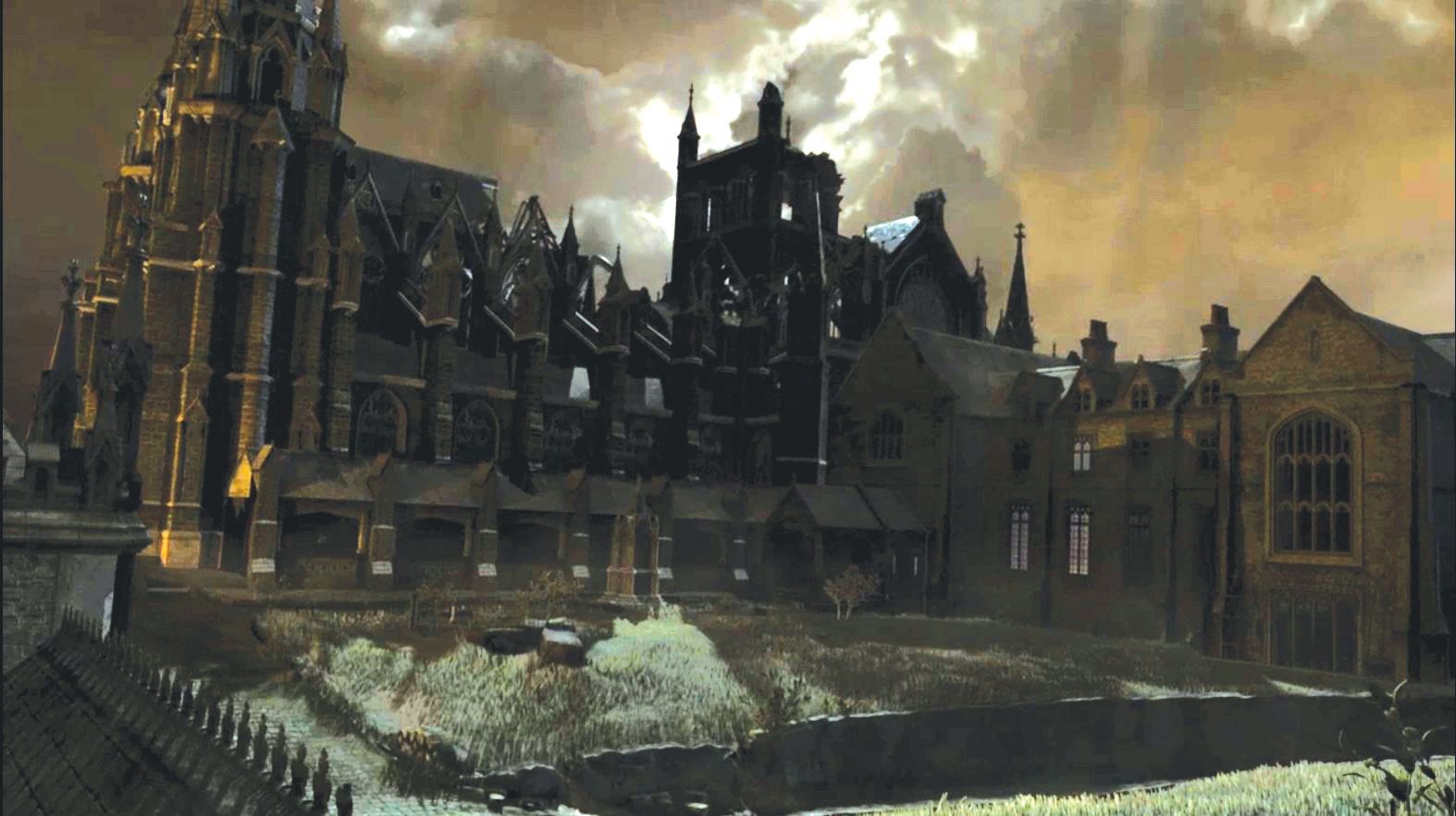
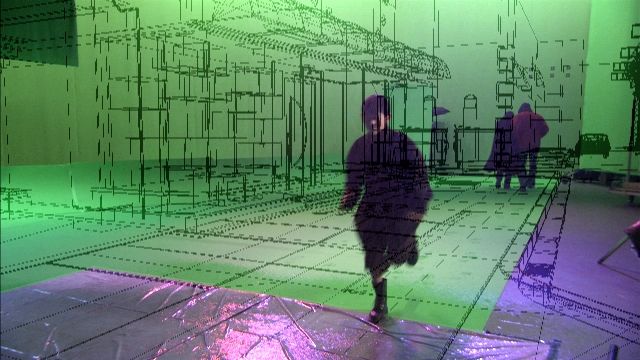
So how did you get Amanda involved?
Damian Kindler: It was very simple. Martin Wood and I sent the script to her and said, “Please,” and she said, “Yes,” and that was it. She called me and said, “This is terrific and I want to play this role,” and I said, “Really?” and she said, “Yeah. Yes.” It was great. And it was literally like pouring a glass of water. Everybody was thirsty and everybody wanted it and it happened, which was terrific. There really wasn’t a second choice. If she’d said, “I can’t,” or “I’m not interested,” or “I don’t think so,” I don’t think it would have worked. She has a huge international following. She’s an executive producer on the show and she’s very good at that. I just don’t know if it would have had any traction without her. She was very powerful in front of the camera and behind the camera and all of it was very important and helpful and necessary.


